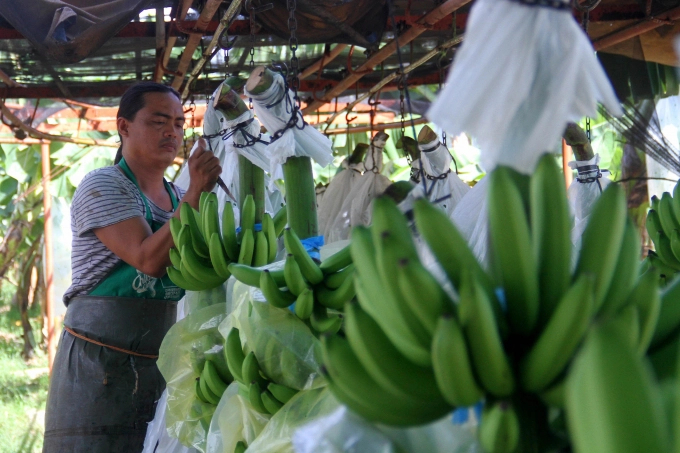May 17, 2025 | 02:00 GMT +7
May 17, 2025 | 02:00 GMT +7
Hotline: 0913.378.918
May 17, 2025 | 02:00 GMT +7
Hotline: 0913.378.918

Banana is among the key fruit export products of the Phillippines. Photo: TL.
The Philippines has waives the fees for the pesticide residue analysis tests for fruits and vegetable exports, aiming to boost agriculture exports and support economic recovery.
According to international sources, the Philippines Department of Agriculture has asked the Bureau of Plant Industry (BPI) and its satellite laboratories to waive the fees for the pesticide residue analysis (PRA) tests for fruits and vegetable exports including both fresh and processed (frozen, dried or puree) ones.
Philippines Chamber of Commerce and Industry (PCCI) Benedicto Yujuico said that the move would benefit about 150,000 farmers in the country including around 150,000 farmers or growers nationwide, including more than 1,000 small and medium processors and exporters engaged in production and processing.
“This is certainly a big boost to the agri-food and export industry especially at this time when businesses have yet to recover from the negative impact of COVID-19 pandemic,” he said.
The Philippines exports have dropped due to chemical residue issues and competition from other suppliers while the country used to be the third-largest exporter of fresh bananas globally until 2015, and the top exporter of fresh mangoes to Japan from 2005 to 2009.
Since 2007, the National Pesticide and Analytical Laboratory has not been imposing PRA fees for fresh and frozen mango exports in compliance with Executive Order 554 of 2006.
In 2019, it started charging residue fees on frozen mangoes amounting to P5,200 for each lot sample.

(VAN) Fourth most important food crop in peril as Latin America and Caribbean suffer from slow-onset climate disaster.

(VAN) Shifting market dynamics and the noise around new legislation has propelled Trouw Nutrition’s research around early life nutrition in poultry. Today, it continues to be a key area of research.

(VAN) India is concerned about its food security and the livelihoods of its farmers if more US food imports are allowed.

(VAN) FAO's Director-General emphasises the need to work together to transform agrifood systems.

(VAN) Europe is facing its worst outbreak of foot-and-mouth since the start of the century.

(VAN) The central authorities, in early April, released a 10-year plan for rural vitalization.

(VAN) Viterra marked a significant milestone in its carbon measurement program in Argentina, called Ígaris, reaching 1 million soybean hectares measured.